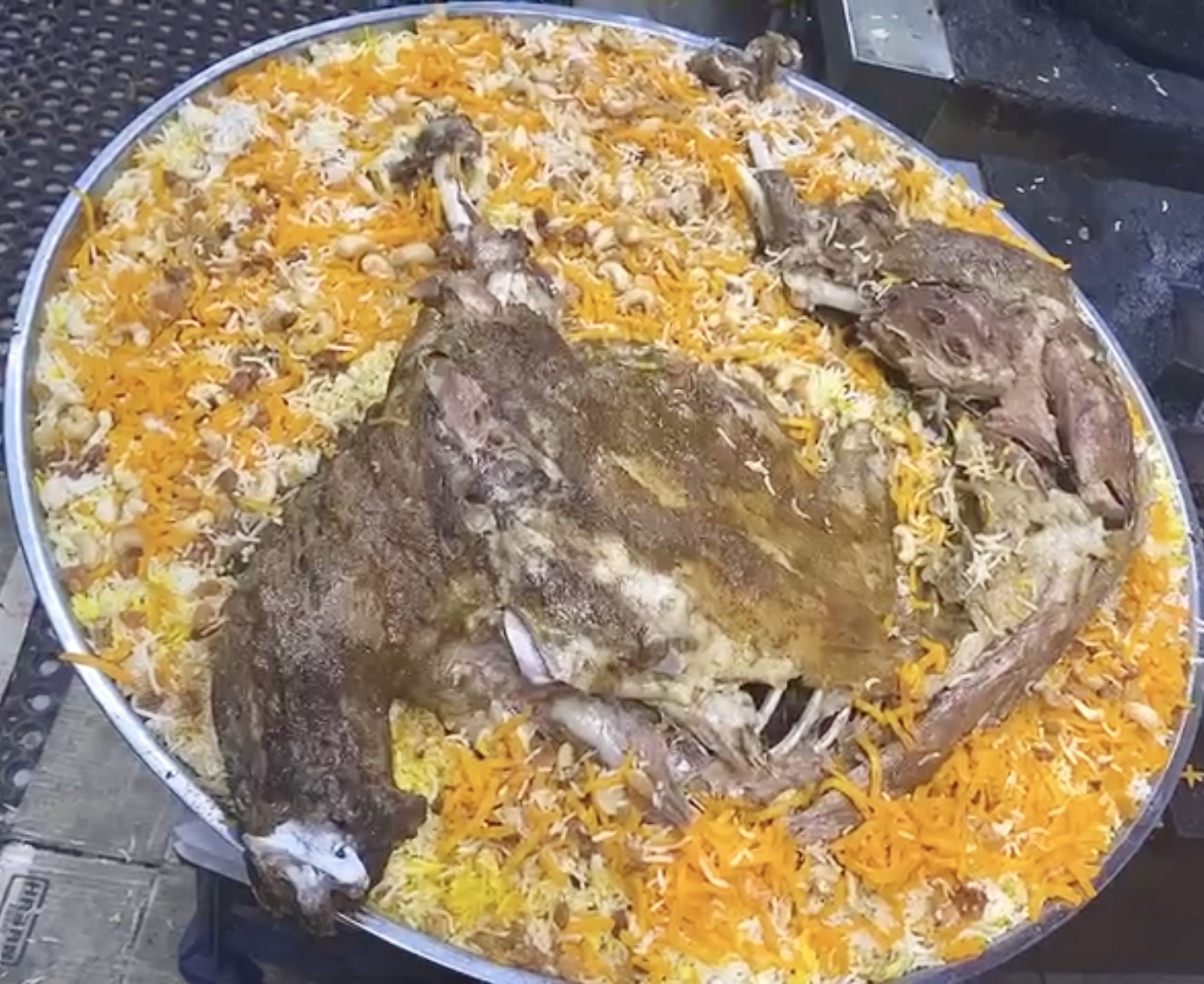Highlights
- Whole lamb roast has roots in both Pakistani and Middle Eastern cuisines
- The goat is usually stuffed with rice and slowly cooked inside a clay oven or charcoal pit for hours
- Though the dish is the same in both cultures there is a slight difference in spices in both
Whether it’s a wedding ceremony or a camping trip with mates, meat lovers in Pakistan will often plump for Sajji, an offering of whole roast goat or lamb that’s crisp on the outside, yet juicy on the inside.
Thanks to a less-is-more cooking method, and the spectacle of meat slowly roasting over an open flame, it’s an enduring favourite for formal or informal get-togethers.
This popular dish, which is said to originate from the Pakistani province of Balochistan, shares similarities with a Middle Eastern one known as Quzi or Mandi, which is found in Iraq, Saudi Arabia and other Gulf countries.
In both cases the goat is usually stuffed with rice and slowly cooked inside a clay oven or charcoal pit for hours. Seasoning is minimal – the meat is typically cut and marinated with salt – so it’s all about getting the perfectly charred and deliciously moist cut.
Sajji or Quzi is not a common find in Australia, but Zafar Khan, of Ali Dine Inn restaurant in the Sydney suburb of Lakemba, has been serving his version of the dish for the past year.
He tells SBS Urdu the dish has found an equal following among Middle Eastern and Pakistani guests.
"Whole goat or lamb roast is a rare find, but there is definitely a demand for it here in Australia," he says.
“Australia is a multi-cultural society and it’s amazing how food can bind people together.”
Guests at Mr Zafar’s restaurant enjoy the dish piled on one big plate that serves eight to ten people and they usually eat with their hands.

Whole goat or lamb roast with rice is equally famous in Pakistani and middle eastern cultures. Source: Supplied by Zafar Hussain
He says his customers are requested to order the dish one day in advance, due to the lengthy marination and cooking process.
"We usually keep it in the tandoor oven for seven to eight hours on low flame so that the meat gets perfectly cooked," he says.
Mr Zafar explains that, depending on requests, he also steams or even fries the whole goat or lamb.
One interesting thing he has found is that his Pakistani customers prefer goat, while his Middle Eastern customers tend to prefer lamb.
The Pakistani version is also spicier, he says, through the addition of red chili and turmeric, while the Middle Eastern one is mild.
His customers visit from far-flung destinations to enjoy this dish or call up asking for delivery.
“Last week we got an order from Gosford and delivered it there,” he adds.
Newcastle-based Owais Khalid is a recent customer who travelled two hours down the highway to have the whole roast goat with his friends.
"I wanted to taste the same dish I loved so much back in Pakistan. It may cost you a fortune, but the trip was so worth it,” Mr Khalid says.
Abdul Rehman, a Lakemba business owner who previously lived in Saudi Arabia, says he often orders the whole roast lamb for his office parties and casual functions.
”I have eaten this dish across the Middle East but it is rare thing to find here in Australia,” he adds.
“Back in Saudi Arabia they make it in a pit but there are different methods. This version has its own smokey taste and is different from other barbecues,” he says
- Listen to Urdu Podcasts on Spotify Podcast, Apple Podcasts, Google Podcast, Stitcher Podcast
- Learn How to Bookmark SBS URDU’s website or make it your home page.
- SBS Urdu is broadcast every Wednesday and Sunday at 6 PM (AEST).
- How to Listen
- COVID 19 Latest Updates in Urdu
- Install “SBS Radio” mobile app

